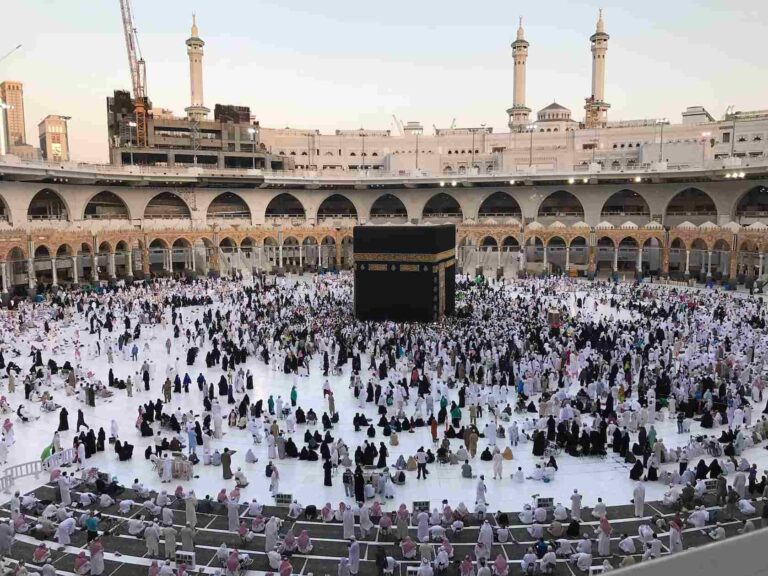While religious practices range greatly across different locations, some nations stand out as most religious countries due to their deeply ingrained religious traditions and beliefs.
For ages, religion has been a vital force in the development of societies and cultures throughout the world. It gives them direction, moral ideals, and a feeling of purpose.
In this article, we will look into the seven most religious countries in the world.
Table of Contents
The 7 most religious countries world ranking
1. Indonesia
Islam, Hinduism, Christianity, and Buddhism, have all had an influence on Indonesia throughout the nation’s long spiritual history. Hinduism and Buddhism arrived in Indonesia in the first and second century A.D. via trading routes between India and China. These faiths expanded throughout the islands after becoming popular among the wealthy.
The Middle Eastern Muslim traders who brought Islam to Indonesia in the thirteenth century were a major factor in this. As it spread slowly across the entire nation, it finally overtook other religions to become the predominant one in many areas of Indonesia.
With the introduction of Christianity in the 16th century, the Europeans also left their stamp on Indonesia’s religious landscape. A diverse mix of people lives in Indonesia today.
2. Egypt
The religious significance of Egypt, the birthplace of ancient civilizations, dates back many centuries. Even though Islam predominates, Egypt’s ancient legacy, including Pharaonic, Coptic Christian, and Jewish traditions, nevertheless has a religious impact.
Famous mosques like the Al-Azhar and Muhammad Ali mosques can be found throughout the nation. A period of fierce devotion and social gatherings, Ramadan is observed annually. Via its religious breaks, architecture, and cultural traditions, Egyptian society has a profound connection to religion.
3. Somalia
Traditional African faiths, Islam, and Christianity all had an impact on Somalia during its long spiritual history. Since Somalia emerged as one of the very first places to accept Islam, the faith has played a big influence in the country.
Islam quickly spread across Somalia, the Arabian, and Peninsula developed into a significant centre of learning for the Muslim world.
In addition to Islam, traditional African faiths have a strong presence in Somalia, where many people still follow them. Even though Christianity first appeared in Somalia in the twelfth century, it continued to be a minority faith in the nation.
4. Saudi Arabia
Saudi Arabia is the origin of Islam and the location of Mecca and Medina, the two holiest places in Islam. As the centre of the Islamic world, Saudi Arabia is of immense religious significance.
The nation closely follows Sunni Islam and its judicial and social systems are permeated with Sharia, the Islamic code of law. Millions of Muslims go to Mecca every year for the Hajj, underscoring the importance of the city to Islam and the globe at large.
As a reflection of the Saudi people’s piety, mosques and prayer routines play an important role in daily life.
5. Ethiopia
African country Ethiopia declares itself to be a Christian country. Tradition in Ethiopia holds that a Greek-speaking missionary by the name of Frumentius converted King Ezana in the 4th century A.D., bringing the Christian faith to the Aksum Empire.
Christianity in Ethiopia has a long history dating back to this time, during which time it has shaped the nation’s spiritual and cultural identity and become a central component of its culture. As a result of his significant contributions to safeguarding and advancing christianity in the nation for many years, Frumentius is now held in high regard by the Ethiopian Orthodox Church.
The first Muslim communities are thought to have arrived in the area as far back as the 7th century, and Islam seems to have a long history in Ethiopia as well.
6. Iran
One of the world’s oldest civilizations and a major player in the field of religion is Iran, formerly known as Persia.
Iran is the original home of the Twelver Shia branch of Islam and is home to the majority of Shia Muslims worldwide. Iranian culture and politics heavily rely on Islam, which is not just a major religious belief in the country.
Grand mosques, temples, and religious institutions can be found all over the nation. Dress codes, Public life, and holidays like Nowruz and the Persian New Year all reflect the influence of religion.
7. India
India is a multiethnic country with a diverse religious landscape. The country is the birthplace of Hinduism, Buddhism, Jainism, and Sikhism, making it the center of the world’s religions.
Hinduism, the most popular religion in the nation, is distinguished by a diverse set of customs and principles. There are many sacred rivers, temples, and pilgrimage sites in the nation.
With great fervor, people celebrate important holidays like Diwali, Holi, and Navratri. The country’s religious diversity is further bolstered by the sizeable followings that Islam, Christianity, and other religions enjoy in various regions.
Read also: From Nepal to Sri Lanka, these are the countries with the most public holidays












